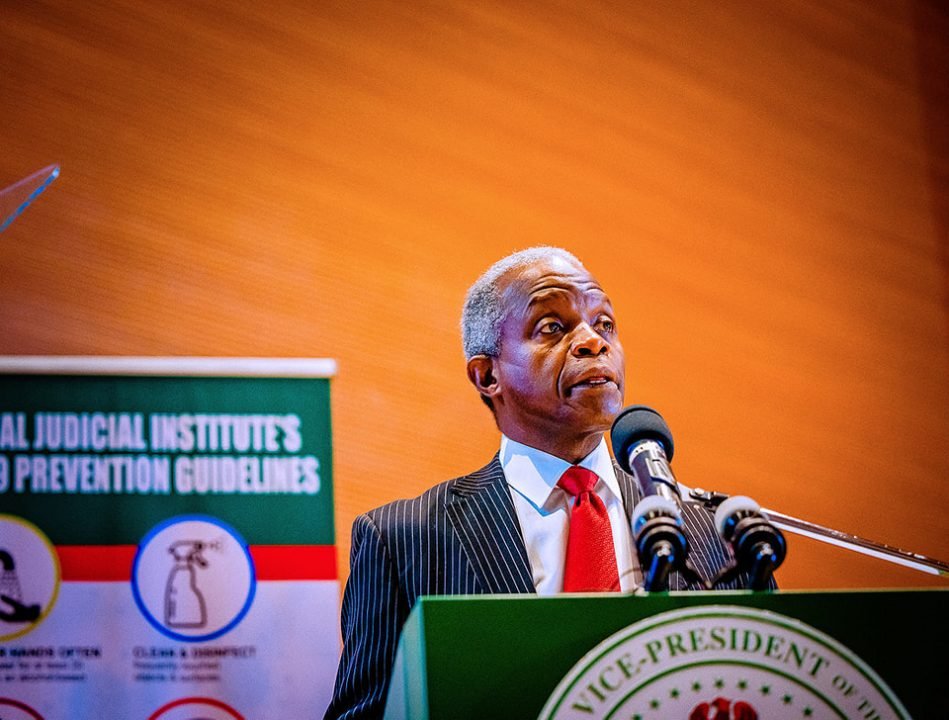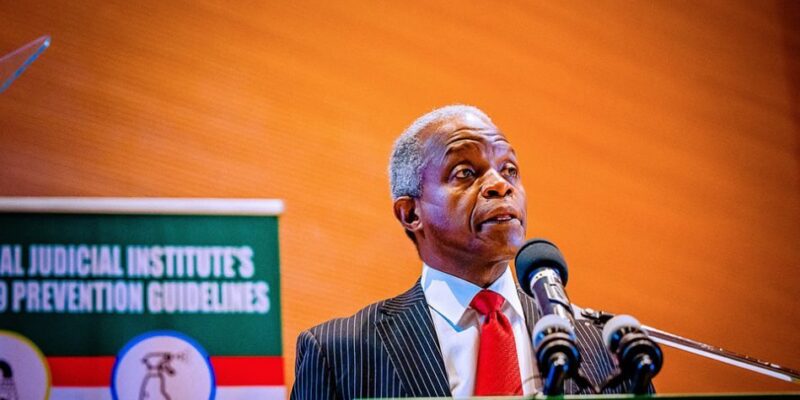
President Muhammadu Buhari has said the Federal Government will continue to partner with the Judiciary to ensure its independence.
Buhari said this at the opening ceremony of the 2021 Biennial All Nigeria Judges’ Conference held at the Andrews Otutu Obaseki Auditorium of the National Judicial Institute, Mohammed Bello Centre, Abuja on Monday.
The President who is away in South Africa was represented at the event by Vice President Yemi Osinbajo, SAN, who delivered his keynote address.
Senior Special Assistant to the Vice President on Media and Publicity, Laolu Akande disclosed this in a statement on Monday.
The statement quoted the President as saying, “As My Lords may recall, in my 2019 address to this gathering, I stressed the need for implementation of measures that will ensure speedy dispensation of justice in the country through the dual-track of removing administrative bottlenecks in the judicial process and adopting modern time-saving technology.
“Lessons learned during this difficult period of the pandemic have provided measures for achieving both goals. We have seen how the Judiciary has risen to the challenge. Practice Directions were issued by several courts for remote hearing of cases, electronic filing of court processes, service of hearing notices via email addresses and mobile phone numbers of counsel, and e-payment of filing fees; with relevant devices installed.
“These innovative approaches have, in addition to ensuring compliance with the COVID-19 protocols, ensured that the wheels of justice continued to move unhindered – in some cases even faster than what was obtained during physical hearings. Speed, efficiency, and effectiveness were attained. It aided in the decongestion of cases, did away with the obsolete method of physical filing, and ensured structured use of both judicial and administrative time and resources. Travel time to-and-from the court for litigants, counsel, and witnesses was no longer an issue, effectively minimising the need for adjournments.
“My administration, through the Federal Ministry of Justice in collaboration with the National Judicial Council, has been working towards the resolution of these challenges. Some of the measures being taken include:
a. Development of strategic infrastructure that will provide ease in case management, including electronic recording of proceedings to replace the tedious longhand recording currently practised in the majority of our courts. Advancements in courtroom technology (E-Court systems) have increased the level of efficiency in the justice system in the areas of speed of documentation, accuracy, security, and accessibility of records.
b. Enhanced welfare of judicial officers, especially in the area of conditions of service – salaries, allowances, and retirement benefits for Judicial Officers. Provision of comprehensive medical insurance. On this, I wish to commend the National Judicial Council for the institution of the NJC Health Insurance Programme, which provides comprehensive international insurance for all members of the Federal Judiciary as well as comprehensive local coverage within all the States of the Federation.”

Comments